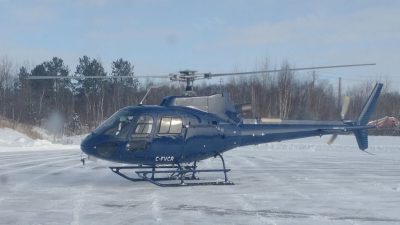
In November of 2022 a Geotech Aviation Ltd. Airbus AS350 helicopter was conducting an aerial survey near Kitsault in northwestern British Columbia when it crashed in heavily forested and mountainous terrain, claiming the life of the pilot. This week the Transportation Safety Board (TSB) released its investigation report into the incident.
During the time the surveying work was being done, the pilot reported feeling ill and was returning to the staging area earlier than planned. During the return flight, the pilot radioed that he was “shivering uncontrollably.” The helicopter crashed a few minutes away from its intended destination. In gathering information, the TSB noted that the pilot, who was over 65 years old, had reported feeling ill in the days before the incident and had experienced bouts of vertigo in the past. However, the pilot held a current medical certificate.
Citing the lack of flight data recording equipment, the TSB said that it could not “determine the full context” of the crash. The report also reported that the aircraft was equipped with a flight tracking device but that it was not precise enough to determine the aircraft’s actual flight path during the final moments of the flight.
As for recommendations stemming from the incident, the TSB cited an earlier one made in 2018 in response to the 2016 crash of a Cessna Citation that claimed three lives. Recommendation A18-01 read, “that the Department of Transport require the mandatory installation of lightweight flight recording systems by commercial operators and private operators not currently required to carry these systems.”
In late 2023 Transport Canada (TC) responded that it agreed in principle with the recommendation and that it was working on a Notice of Proposed Amendment (NPA) to address this issue. Although the NPA was supposed to have been issued by now, TC has pushed its publication to later this year or next, “to allow for additional analysis.”
